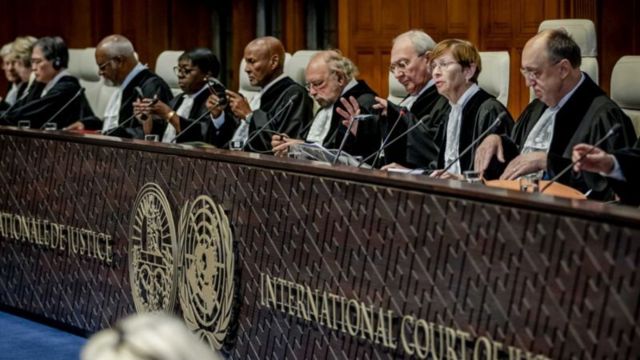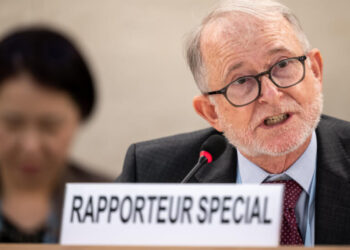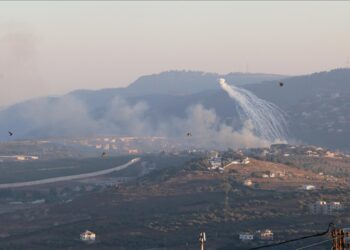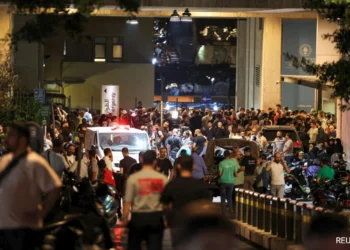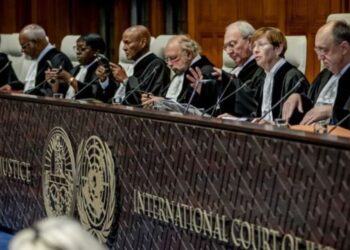Human Lives Human Rights: Today’s ruling by the International Court of Justice (ICJ) to issue provisional measures in response to South Africa’s genocide case against Israel is a significant development that holds the potential to safeguard the Palestinian people in the occupied Gaza Strip from further suffering and irreparable harm.
Although the Court did not mandate an immediate ceasefire by all parties, such a cessation remains crucial and is deemed the most effective condition to implement the provisional measures, putting an end to unparalleled civilian suffering.
The ICJ’s decision encompasses six provisional measures, including Israel refraining from acts under the Genocide Convention, preventing and punishing direct and public incitement to genocide, and ensuring immediate and effective measures for the provision of humanitarian assistance to Gaza civilians. Importantly, Israel is directed to preserve evidence of genocide and submit a report to the Court within one month detailing all measures taken in compliance with the order.
The authoritative nature of today’s decision emphasizes the vital role of international law in preventing genocide and protecting victims of atrocity crimes. It sends a clear message that the world will not stand idly by as Israel pursues a relentless military campaign, causing death, horror, and suffering on an unprecedented scale against Palestinians in the Gaza Strip.
While the ICJ decision alone may not bring an end to the ongoing atrocities and devastation in Gaza, it underscores the urgent need for effective, unified pressure on Israel to halt its onslaught against Palestinians. The international community, including world leaders from the USA, UK, Germany, and other EU states, must signal their respect for the Court’s legally binding decision and actively work to ensure the implementation of these crucial measures. Failure to do so would severely undermine the credibility and trust in the international legal order.
In addition to implementing the ICJ’s recommendations, states must urgently take measures to prevent ongoing international crimes, including the imposition of a comprehensive arms embargo against both Israel and Palestinian armed groups.
The risk of genocide in Gaza has been highlighted by rights groups due to the shockingly high death toll, widespread destruction from Israel’s relentless bombardment, and deliberate denial of humanitarian aid due to the ongoing illegal blockade. Warning signs also include an increase in racist rhetoric by some Israeli government officials and Israel’s historical oppression and discrimination against Palestinians under its apartheid system. Faced with a serious risk of genocide, all states have a legal obligation to act to prevent its commission.
With over 26,000 Palestinians, mostly civilians, killed in Israel’s relentless bombardment, and more than 10,000 believed to be missing under the rubble, urgent action is needed. At least 1.8 million Palestinians are internally displaced, deprived of essential resources, and facing a dire humanitarian crisis.
Human rights organizations call on Israel, Hamas, and other Palestinian armed groups to immediately suspend all military operations in Gaza. Israel must lift its illegal and inhuman siege, allowing the unhindered flow of humanitarian aid to Palestinians suffering from a deliberately engineered famine. Hamas and other armed groups are urged to release all remaining civilian hostages.
Background: South Africa filed a case against Israel at the ICJ on December 29, 2023, over allegations of genocide against the Palestinian people. The case centers on attacks in October 2023 by Hamas and other armed groups, resulting in nearly 1,200 deaths and around 240 hostages in Israel. Hearings on South Africa’s request for provisional measures occurred on January 11 and 12, 2024. The ICJ is the principal judicial organ of the United Nations, settling legal disputes submitted by states, including those related to the Genocide Convention. Judgments are binding, with non-implementation leading to recourse to the Security Council for recommendations or measures to give effect to the judgment.

